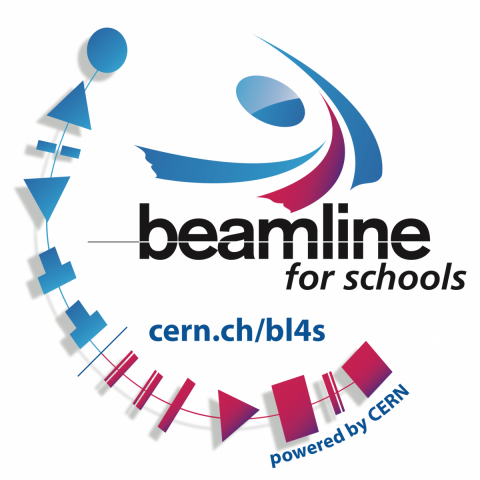Canadian high school wins use of a CERN Accelerator (with a little help from SNOLAB)

(Sudbury) For the first time, a Canadian high school will conduct an experiment at CERN with the help of a University of Alberta professor and some SNOLAB technology!
CERN’s Beamline for Schools competition, which began in 2014, names two winning schools each year. This year, the Charging Cavaliers (École Secondaire Catholique Père-René-de-Galinée in Cambridge, Ontario) from Canada and TCO-ASA from Italy were selected from a total of 180 teams from 43 countries around the world. The winners have been selected to travel to CERN in September to carry out their own experiments using a CERN accelerator beam.
The Charging Cavaliers will search for elementary particles with a fractional charge by observing their smaller light emission in the same type of liquid scintillator as developed by the SNO+ experiment at SNOLAB. Our current understanding of the nature of matter, expressed by the Standard Model, stipulates that only particles with integer charge can be observed. With this proposal, these students are questioning the Standard Model of particle physics and trying to get a glimpse of as yet unexplored territory.
Dr. Nigel Smith, Director of SNOLAB is happily welcoming the students to SNOLAB in July to work on the liquid scintillator and photomultiplier tubes that are required for their experiment. “We are thrilled that a Canadian school team has been selected in this year’s Beamline for Schools, using a technology spearheaded by the SNO+ project at SNOLAB, and look forward to working with the team to help bring their particle detector to fruition. Inspiring young scientists and collaborating with great minds is a priority for SNOLAB and this is a perfect opportunity to work with Dr. Pinfold from University of Alberta and these exceptional students”.
Now that the Charging Cavaliers’ proposal has been given the green light, Professor James Pinfold, who is a founding member of the ATLAS Experiment and Spokesman of the MoEDAL Experiment, both of which are currently operating at CERN’s Large Hadron Collider, will work with the students, SNOLAB and CERN physicists to build the special detector required to be deployed at CERN to possibly detect the tell-tale sign of new fractionally charged particles. SNOLAB will provide purified linear alkybenzene, aka LAB, a chemical compound that is the basis for the liquid scintillator that is the sensitive element of this detector.
The Beamline for Schools competition was launched to mark CERN’s 60th anniversary. Students had to submit a written proposal and video explaining why they wanted to come to CERN, what they hoped to take away from the experience and initial thoughts of how they would use the particle beam for their experiment. Taking into consideration creativity, motivation, feasibility and scientific method, CERN experts evaluated the proposals. A final selection was presented to the CERN scientific committee responsible for assigning beam time to experiments, who chose two winning teams to carry out their experiments together at CERN.
LINKS
Charging Cavaliers proposal video
https://www.youtube.com/watch?v=ckhPq1he3ow
Beamline for Schools 2018
http://beamline-for-schools.web.cern.ch/
Contacts:
CERN
Arnaud Marsollier
Head of Media Relations
Tel: +41 22 767 41 01
Mobile: +41 75 411 2789
Arnaud.Marsollier@cern.ch
@amarsollier
University of Alberta
Professor James Pinfold, FRSC
Distinguished University Professor
Centre for Particle Physics Research
University of Alberta
jpinfold@ualberta.ca
Tel: 001-780-492-2498
École secondaire catholique Père-René-de-Galinée
Denis Jacques, Teacher
Headmaster : Mme Joanne Leblanc-Holden
Cambridge, ON
Tel : 519-650-9444
Fax: 519-650-9313
SNOLAB
Samantha Kuula
Communications Officer
SNOLAB
(705) 692-7000 x2222
Samantha.Kuula@snolab.ca
@SNOLAB